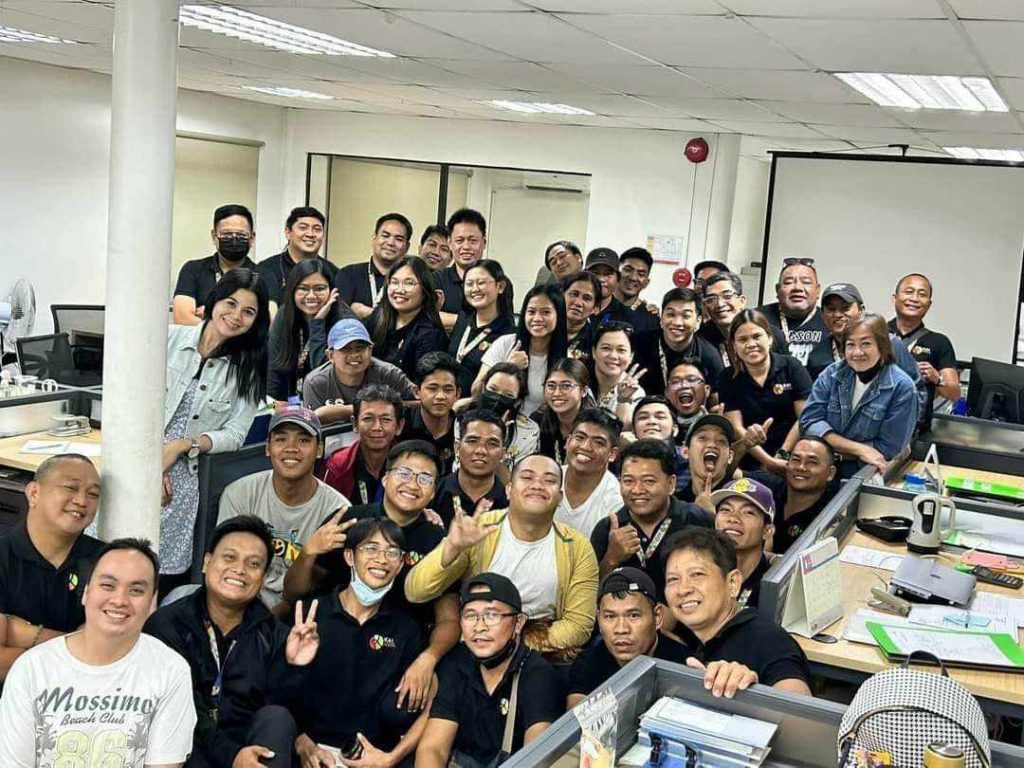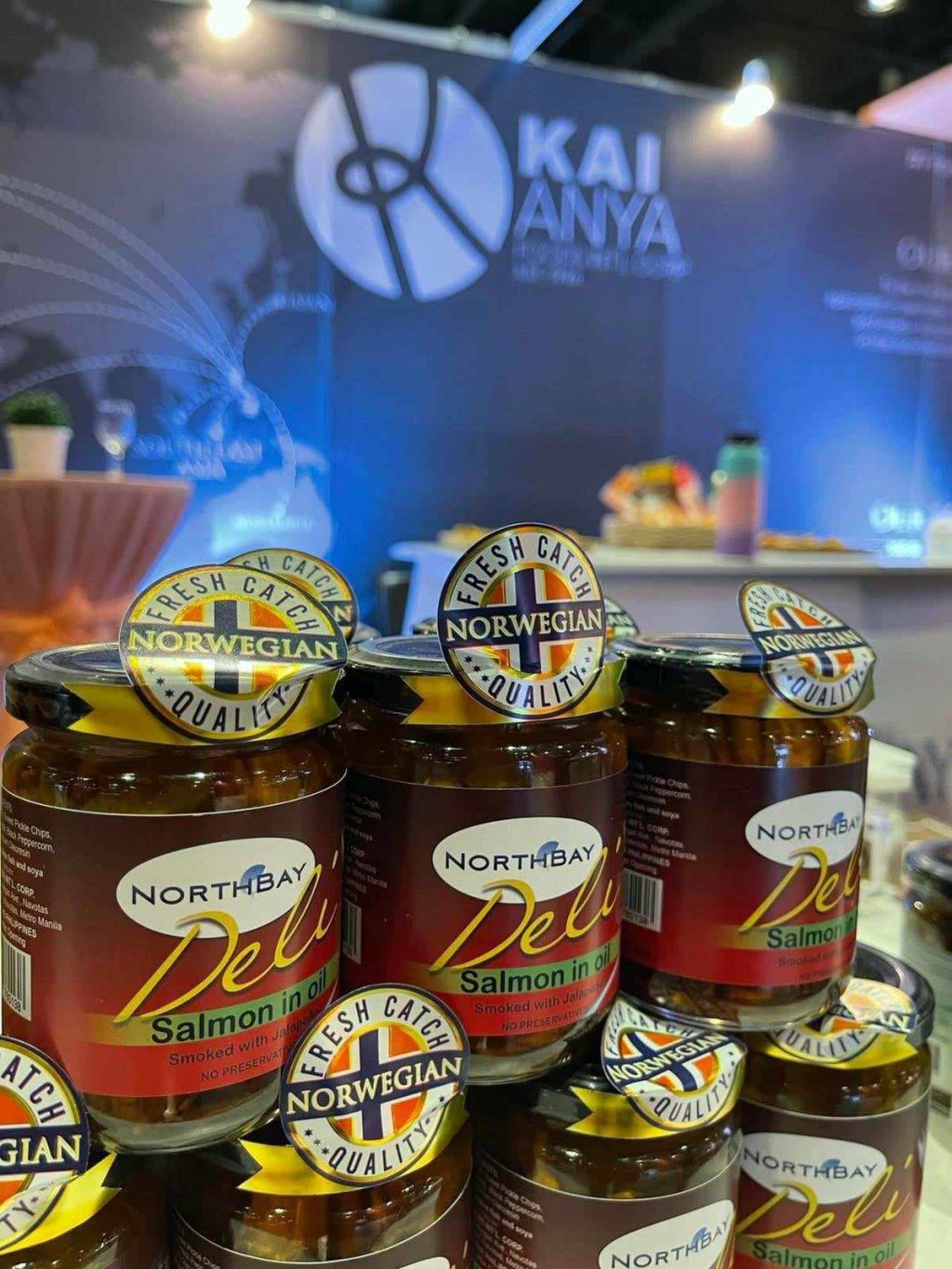
As China continues to prominently dominate world trade and markets, a fledgling Filipino exporter is dreaming of penetrating China’s huge market itself with its tasteful bottled smoked salmon.
This vision began to crystallize when several Chinese exporters and importers were impressed by the taste and by the creative packaging of salmon bellies of Kai-anya Foods International Corporation. This is a 28-year-old Filipino seafood, poultry and meat company that has evolved from meat-trading to becoming a food producer, visualizing to feed “humanity” with healthy and nutritious products.
This happened in a recent Philippine International Food Exhibition at the World Trade Center in Pasay City.
“During the IFEX, it was a revelation to me when the Chinese were very intrigued at how we were able to make something very good out of the salmon bellies, when the UK and Norway don’t see this product as food because they usually cut them up, then they focus on the meat part of the salmon. They (Chinese) liked the smokiness, the saltiness and the jalapeno flavor of our product. We were pleasantly surprised that the Chinese liked it. It’s going to be a big market if we will be able to penetrate China, what with their huge population,” so says Marvin Roxas, President and Chief Operating Officer of Kai-anya.
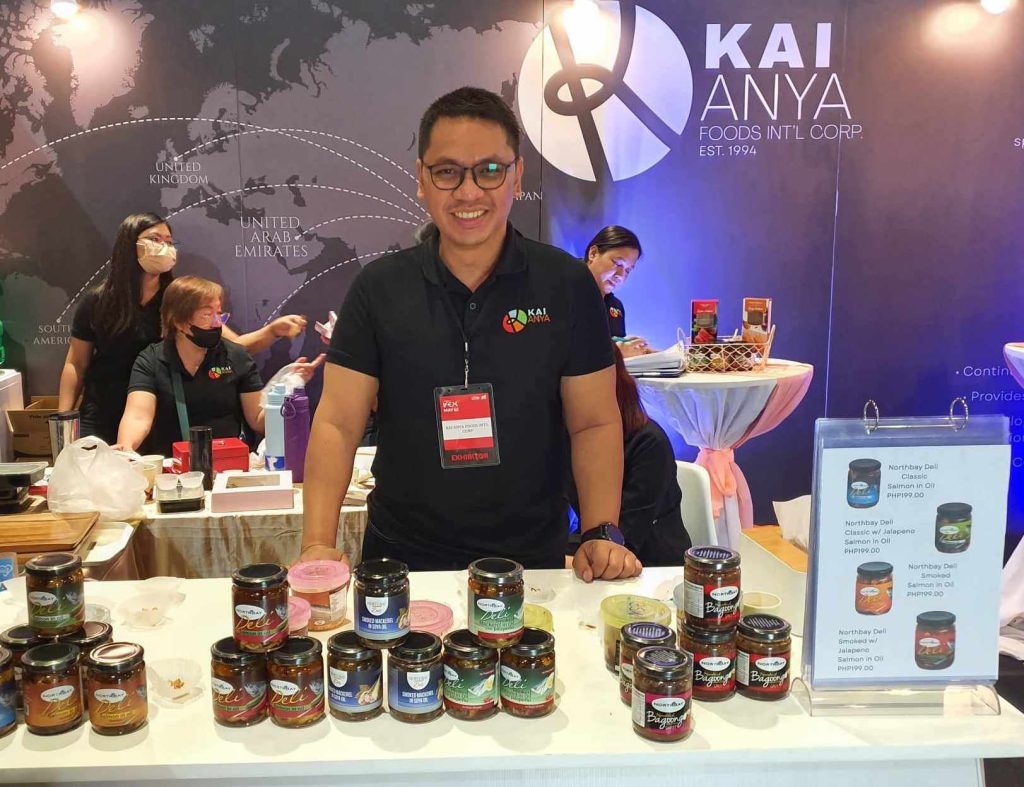
Mr. Roxas notes it will be a dream come true, should his company make it to the Chinese market.
“We would love to do business with our Chinese friends there because their population is a really really big market. I think once our brand will be in China, it’s going to be easily known to other countries as well. Yes, China is a dream for us.”
For now, Kai-anya is focusing its maiden export venture in the Middle East.
“For this year, we are preparing to export our products to the Middle East, to the consolidators first. The target is to ship the bottled salmon first, since a lot of Filipinos there love the smokiness, like the tinapang bangus. We translated the smokiness of the tinapang bangus to salmon, which is healthier, because of the Omega 3. This is the clamor in the Middle East right now. They’re eager to taste the smoked salmon in oil,” Mr. Roxas excitedly shared with Embassytopps.
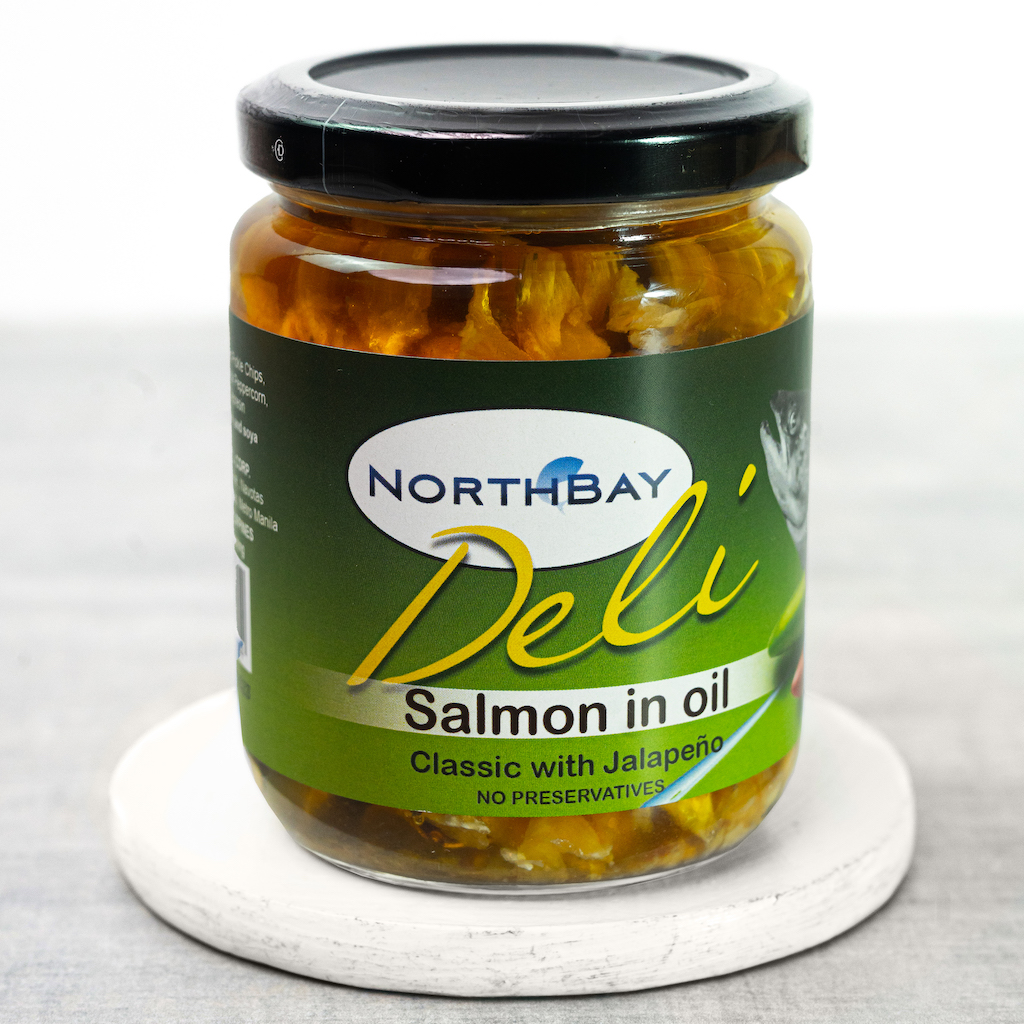
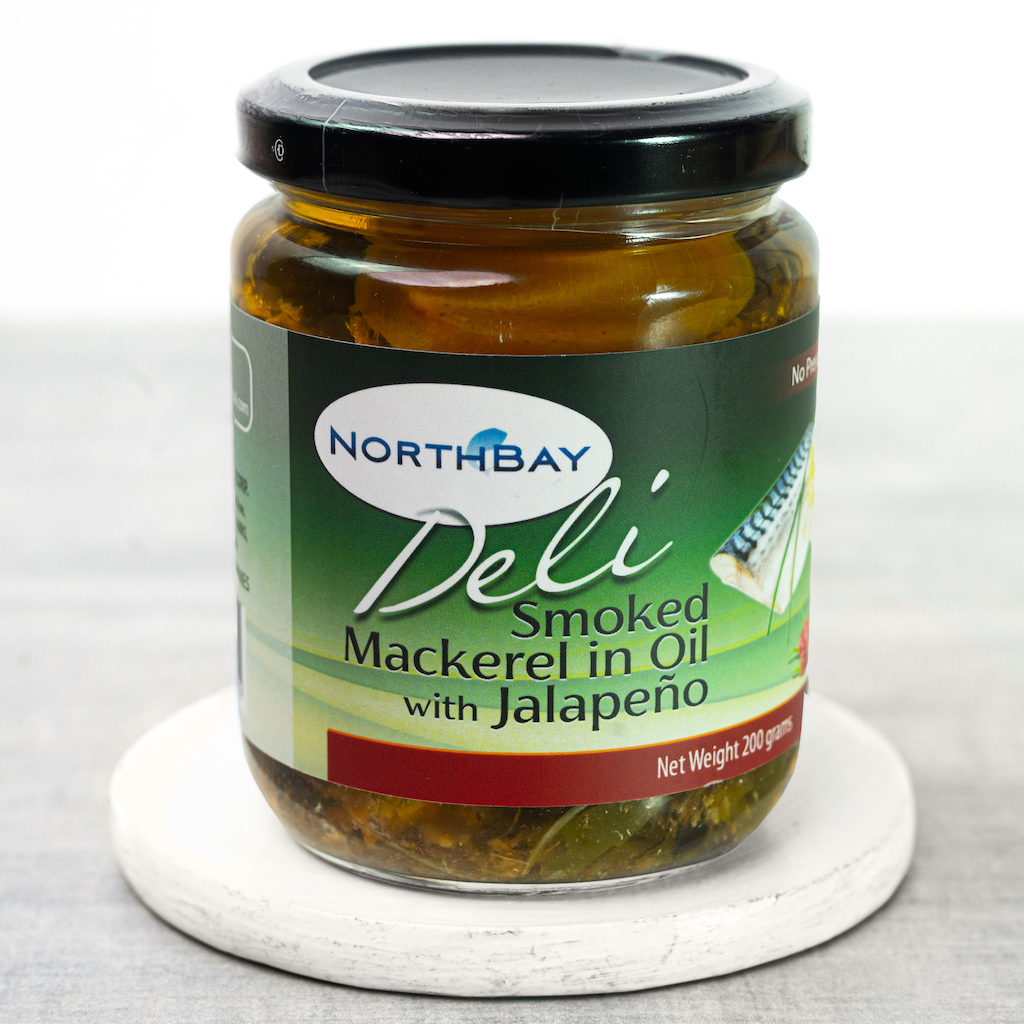
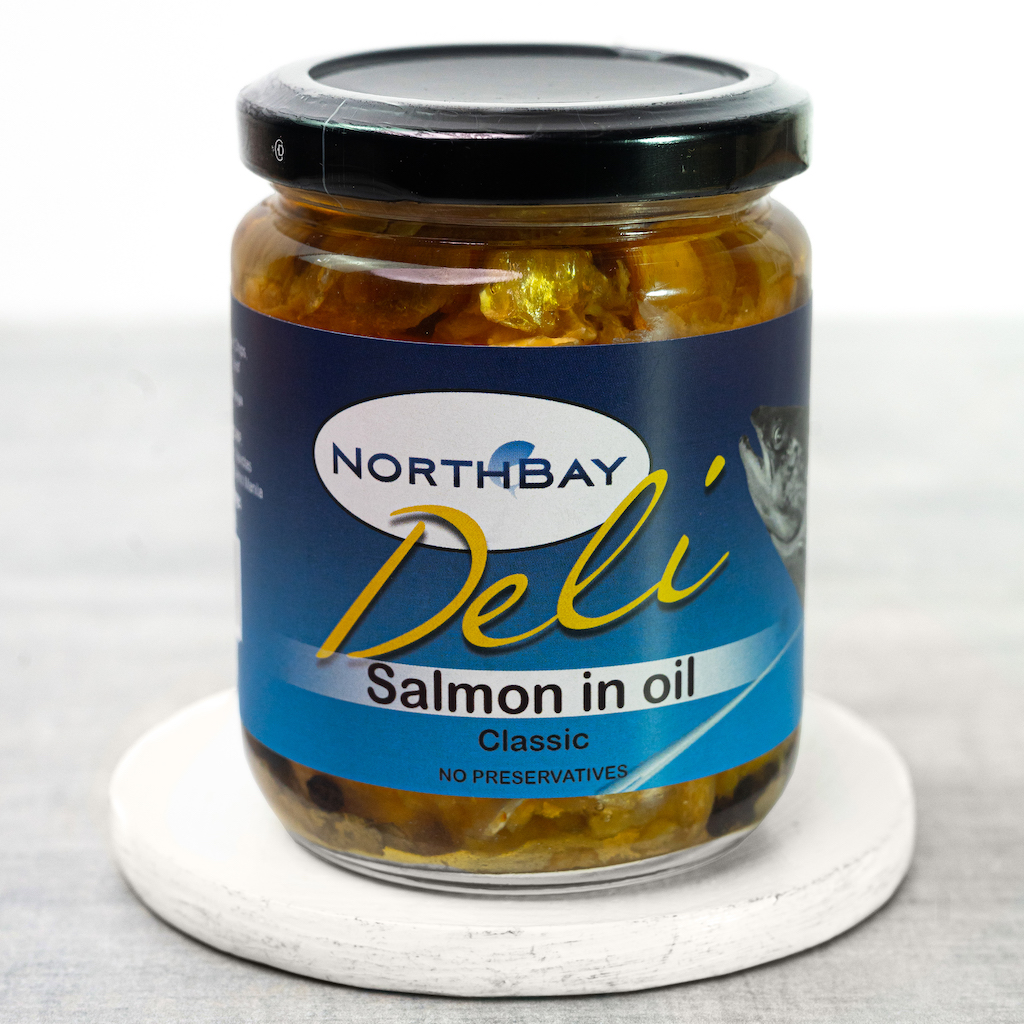
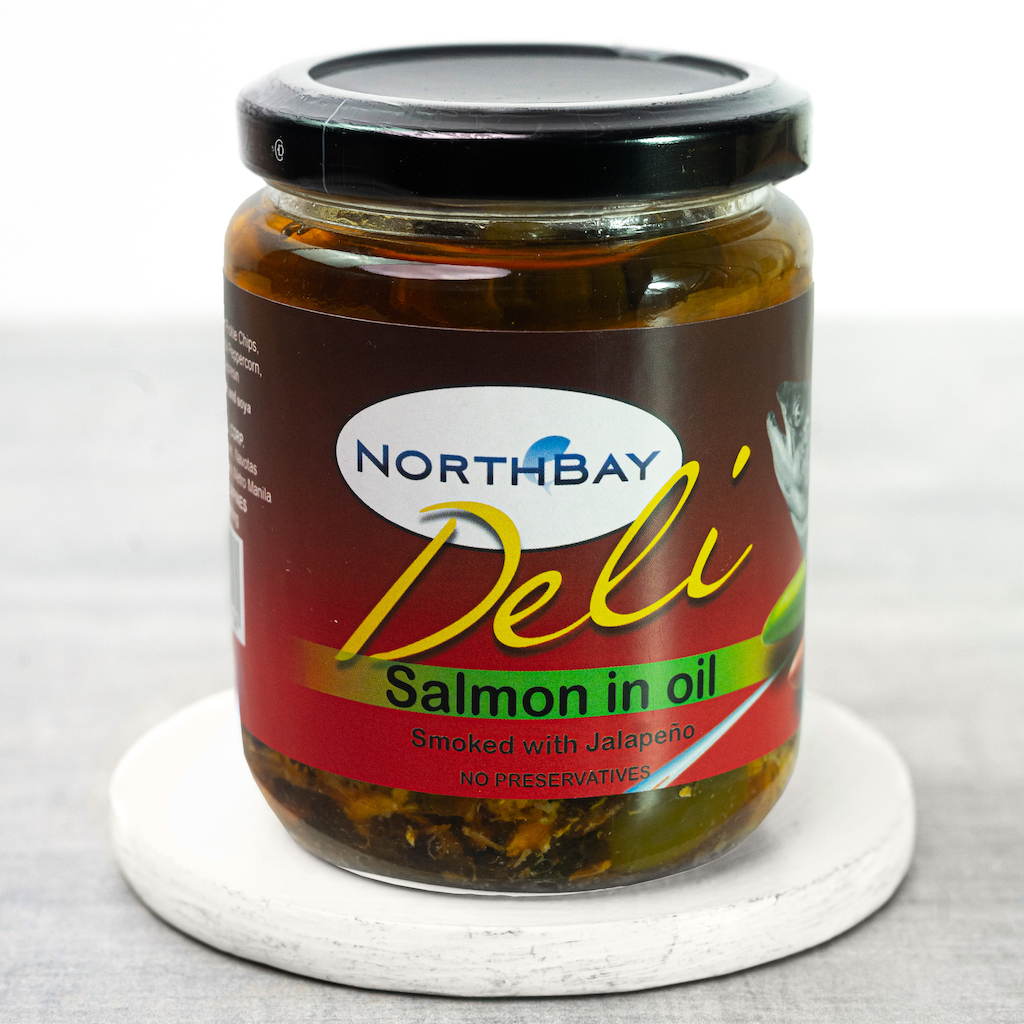
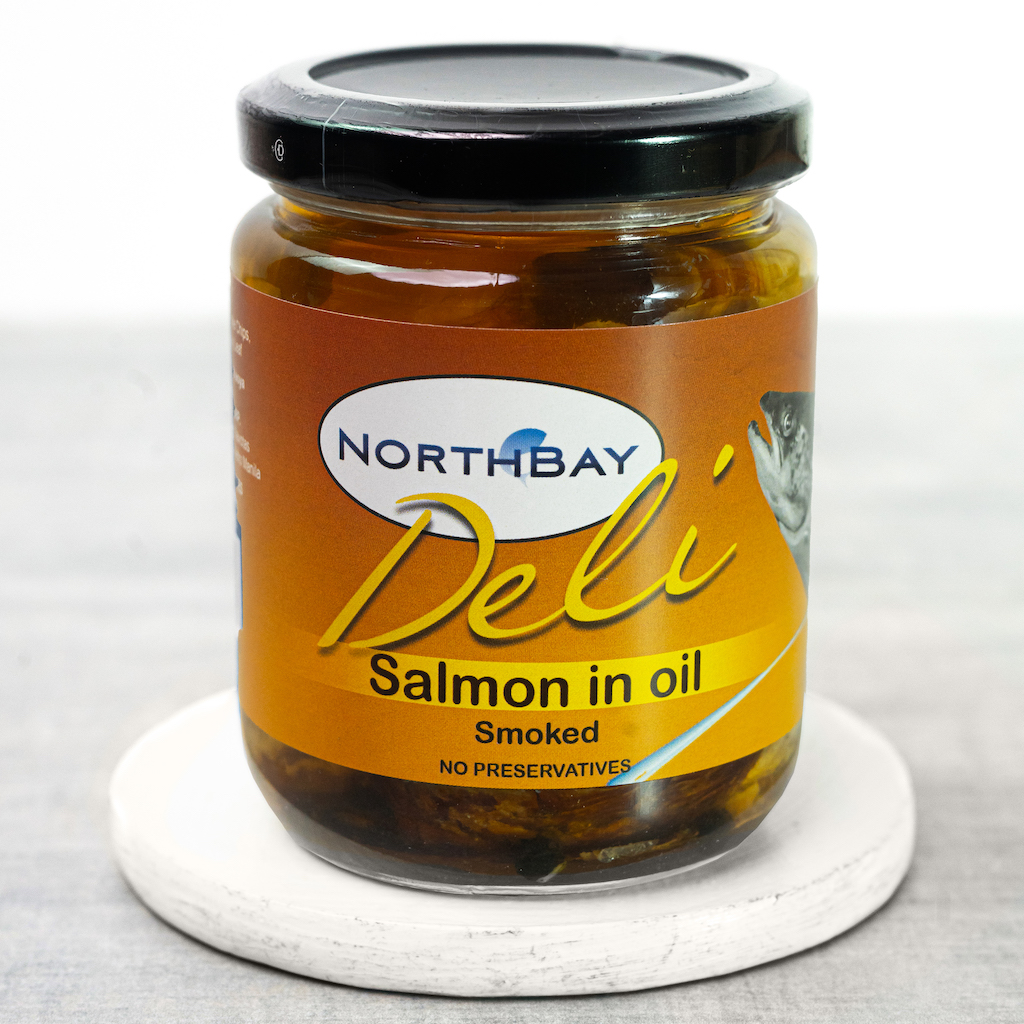
Why the Middle East?
“It is because that’s where people are very interested in Halal-based products. So that’s what we see as our competitive advantage because our products are Halal-certified. It’s gonna be an easy market for us,” he explains.
Second country target to get the bottled smoked salmon is no less than the United States.
“In the US, there is also a growing clamor for this smoked salmon in the Filipino community. So we are also preparing for the required documents to export there. A lot of licenses and regulations must be met first. So when they are shipped in the US, it’s going to be worry-free for us. So we are preparing for this as well, this year. So we’re laying the foundations, we’re preparing our systems and backends, that by the first half of 2024, we intend to have this shipped in the US,” the Kai-anya president notes.

Next in the agenda, Mr. Roxas says, is Asean.
While local producers like him (and an exporter at the same time) are also vulnerable to shocks in various economic factors, the Kai-anya COO notes, some of these indicators are starting to either go down or stabilize.
This includes inflation and the peso-dollar exchange rate. This means a decent margin is still attainable.
“For this 2023, we can still have it, despite our application on the required P40 increase in employees’ salaries; the prices of oil and gasoline are going down a bit; and inflation is going down, so that the price of raw materials is going down also. So I am confident we can still have a decent margin towards the end of the year.
Economists are also forecasting that the peso-dollar exchange rate will stay within the P54-55 levels. That is why this is a huge boost to us,” Mr. Roxas goes on to say.
This has allowed Kai-anya not to raise its prices for its exports. However, he says perhaps eventually a slight uptick in the local price of bottled smoke salmon may be necessary. After all, he says, this is a prime product, not to mention that it is the very first one of its kind in the local market.
“As of now, since it’s a prime commodity because of its Omega 3 and its freshness, we may have to increase our product prices just a little bit, specifically on gourmet fish,” Mr. Roxas notes.
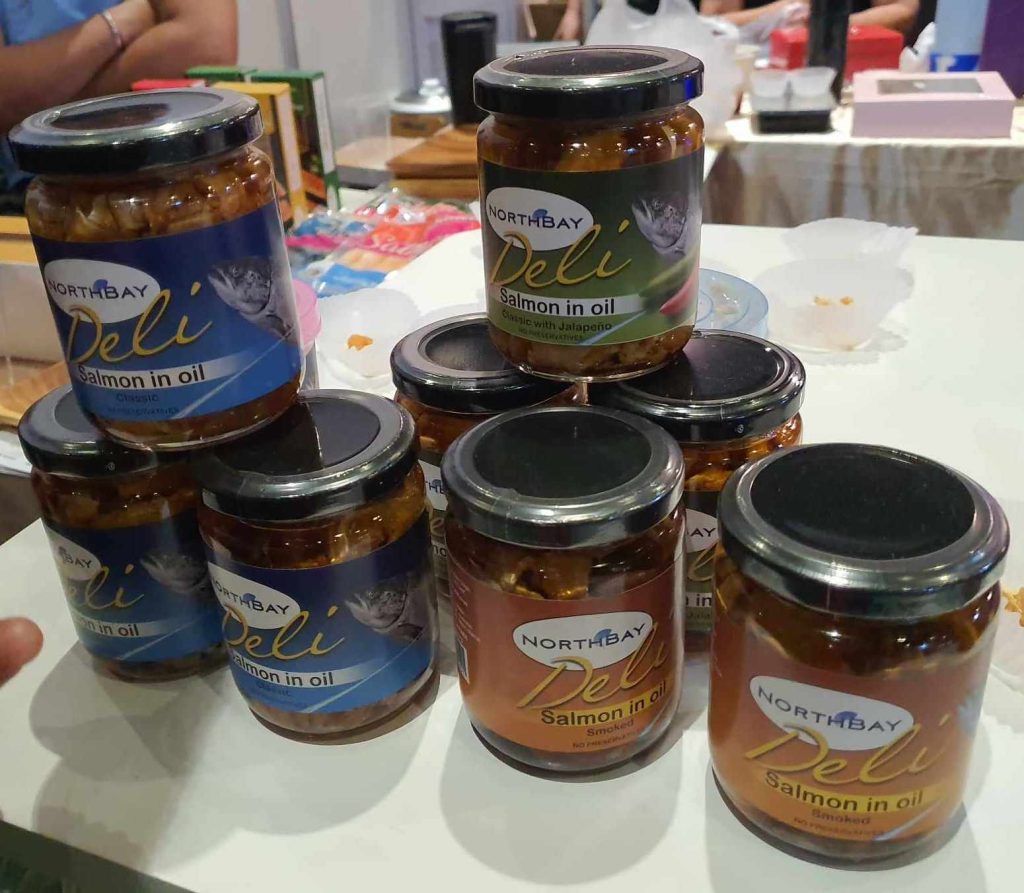
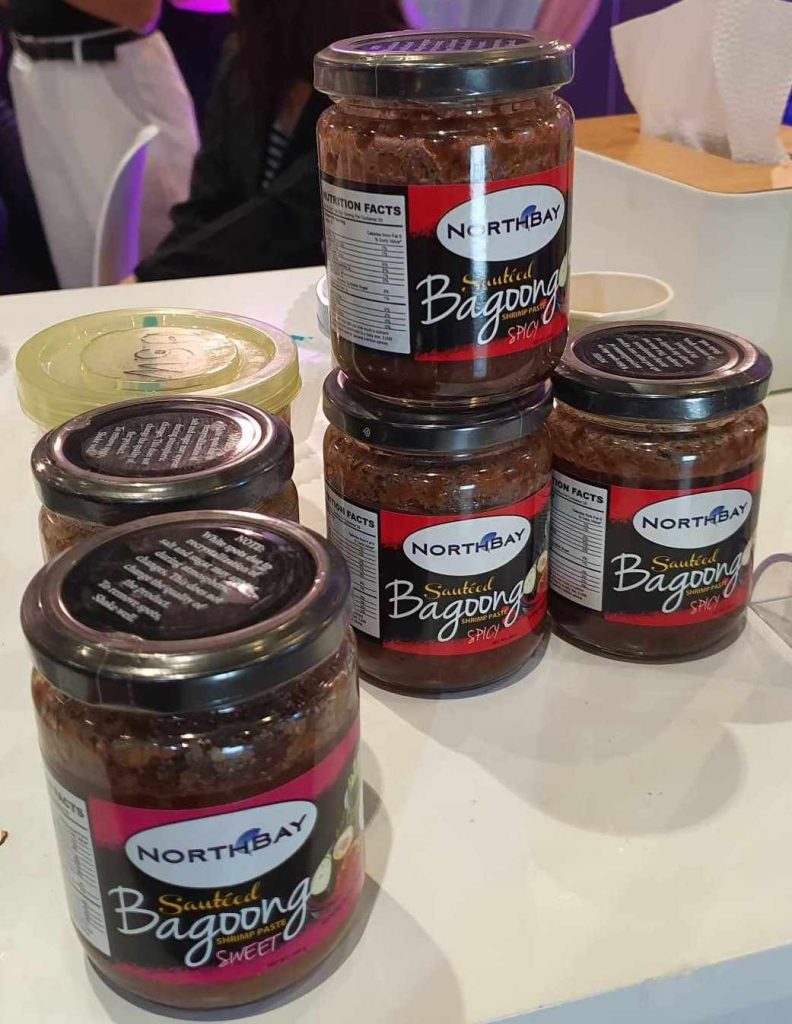
And while current exports lineup are in stable levels, any market shocks or jitters can still affect their pricing, eventually.
“In pricing, we’re good in the first half of 2023, even if Norway already increased its taxes. So, this duty increase is going to play a vital role for the last quarter of 2023. We’ll still go by the peso-dollar exchange rate of P54.50 towards the end of the current year. So pretty much the prices of our products will remain stable but if anything happens, like if the Ukraine-Russia war escalates, the prices of so many things will go up again. Definitely, we will have to follow suit and increase our product prices to stay afloat if these challenging times come,” the Kai-anya executive explains.
Meanwhile, Mr. Roxas is seeking government intervention in at least three segments in the business of exporting.
“One of our major problems here is our ports. We have to streamline the processes;
second, the government should invest in cold storage facilities because currently, we have local fishes that are really good, but in terms of storing them, we definite lack of these, especially during the “ber” months, when importations are at their peak…the fruits, the fish, the meat;
third, we have to digitize our systems and processes from the Bureau of Fisheries and Aquatic Resources, to the Bureau of Customs, to trucking. This is to streamline everything so that we can just focus on developing products, food, and helping Filipinos get properly nourished.”
Meantime, Mr. Roxas appreciates the current strides to develop the Philippines’ own brand name abroad, which is Tatak Pinoy.
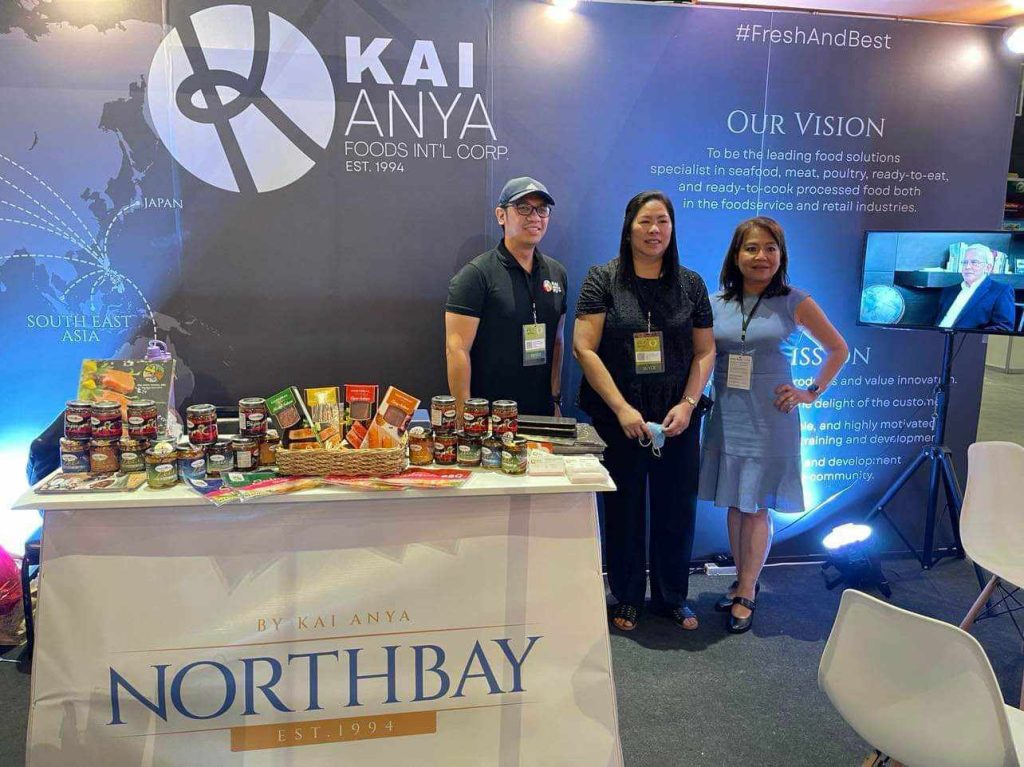
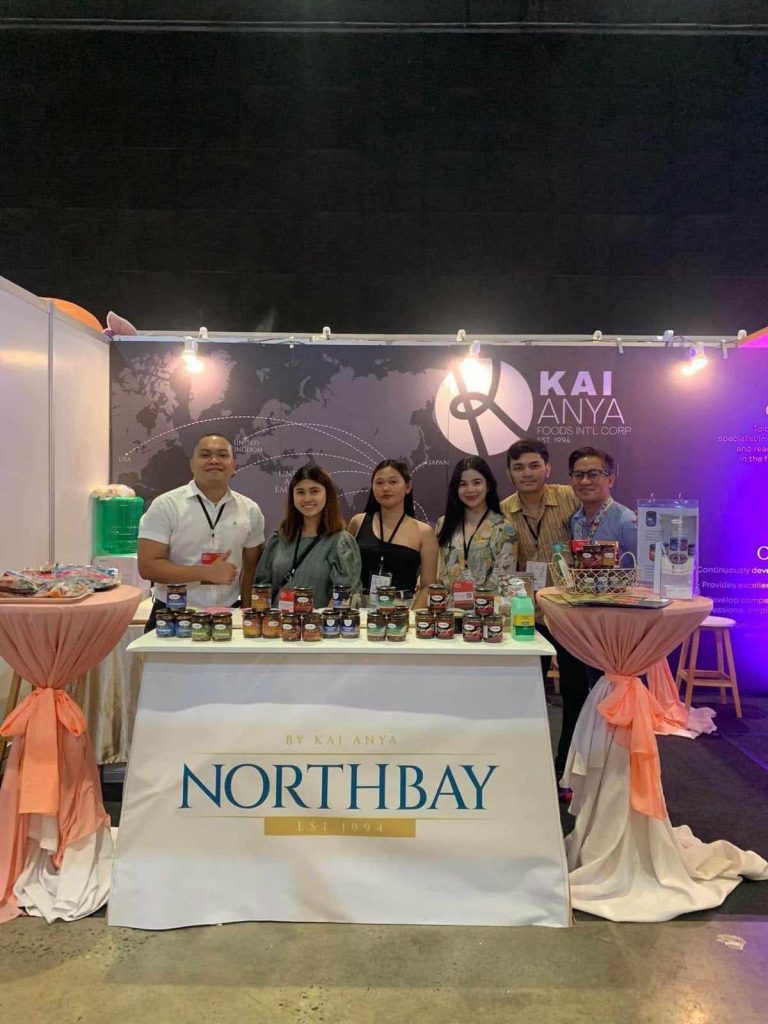
“That’s a very good initiative. I am used to watch Tiktok and I see Filipinos joining several cooking competitions. It makes me proud, they are making our dishes, like adobo and dinuguan, in other countries. Our products, skills and talents are really really world class. So pushing for the Tatak Pinoy will further fortify how Filipinos are really good in anything we do, especially if the government will support us,” he notes.
As more markets abroad welcome Philippine products, such as through the possible export markets in the European Union under a prospective renewed Free Trade Agreement, local exporters can have the chance to penetrate more markets, than they may have initially targeted.

